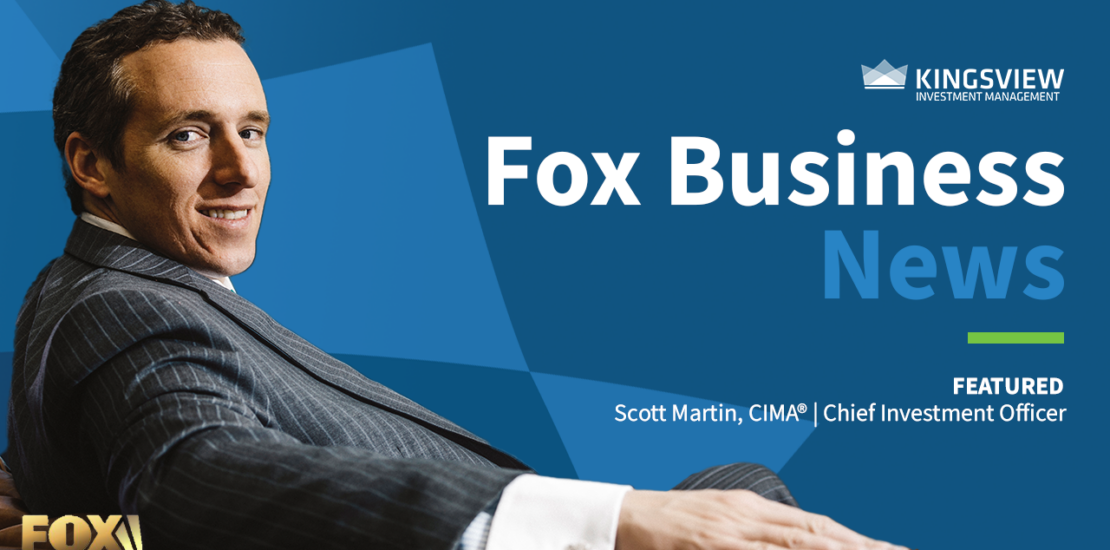- 2024-04-10
- Posted by: kimsite
- Categories: Commentary, Insights, News

Click here to listen to the full interview.
NEIL CAVUTO: The Federal Reserve hasn’t even moved on interest rates, even though there’s been promise and hope that this was going to be the year they start cutting. But market rates have been backing up. They’ve been going higher on an anticipation here that inflation’s a problem. And we had a report today that proved it. Scott Martin with us, Francis Newton, Stacy with us. Scott, to you, is that a justified concern now that rate hikes or at least rate cuts are off the table? One fed governor was talking about a rate hike. Where are you on?
SCOTT MARTIN: I’ll tell you, Neil, I think the market got a little ahead of itself thinking at first we were going to maybe get six cuts, then four, then two. As you and I have talked over the years or over the year, we’ve talked about having no rate cuts or no rate hikes coming. And I think really that’s still what the market needs to get its arms around. And so when you see a day like today that perpetuates probably no rate cuts. And then we get data that will be down the pike that says, Hey, there’s not going to be a rate hike. The market’s got to react accordingly. And so far doesn’t like it.
NEIL CAVUTO: Alright. Market rates have been backing up Francis, and that’s something over which Fed has very little control and can try to jawbone them to influence them, but it’s not working right now. Where do you think this goes?
FRANCES NEWTON STACY: Well, I think that if we don’t have a credit event, I think that the Fed is going to have an extremely hard time…
NEIL CAVUTO: What is a credit event?
FRANCES NEWTON STACY: Sorry? A credit event means that something in the system you have a lot of defaulting either on credit cards or commercial real estate or bankruptcies or foreclosures. Similar to the financial crisis, though it may not be housing this time around, but if we don’t have some kind of crisis, the Fed is going to continuously have a hard time justifying this notion of cutting rates. And remember that all of these components in CPI have lagging effects. So if these commodity prices continuously go higher on a lag CPI is only going to get worse this year. So probably won’t have a rate cut and hopefully not a rate hike.
NEIL CAVUTO: Scott, the wind at everyone’s back has been these strong markets, 10% gains thereabouts for the SB 500 for stocks in general look like a good year to you. Does it still look like a good year?
SCOTT MARTIN: It does, but there’s challenges ahead, Neil. I think the market has probably gotten a little ahead of itself and I think these hopes of a rate cut that would perpetuate more of the gains is obviously overdone and overblown. So the market actually has to go back to fundamentals. You have to watch earnings, you have to watch company announcements, and of course we got this tiny little thing in November regarding an election coming up that obviously has its effect going forward. So there’s a lot of pitfalls maybe ahead that we didn’t experience in the previous three months and investors should be ready for those.
NEIL CAVUTO: Francis, I was thinking if we hold around these rates for the 10 year note, I don’t want to get too arcane here, but that’s kind what mortgage rates are attached to a lot of other rates and that would translate roughly into a seven and quarter, seven and a half percent, 30 year fixed rate that could at least cool housing. What do you think?
FRANCES NEWTON STACY: Yeah, it could. You have this other anomaly in housing where you just have this low supply and the low supply comes from the fact that people don’t want to sell their current houses even if they want to leave because they don’t want to lose their low rate mortgages. So it is creating a lot of that in commercial real estate. You have some of those mortgages that are coming for maturity that are at 4%. They’re going to maybe even be nine to 11% depending on what kind of mortgages they are. The back in the office thing hasn’t totally taken hold, particularly in the small business. You can’t do AI from home, but that’s only a small sector of the economy. So we definitely have some headwinds ahead. But the thing that has been keeping this economy stable despite the Fed raising rates is we have very high fiscal spending. Private credit has come in to backstop these loans and people have been putting things on credit cards. So if any one of those things falls apart, it could change
NEIL CAVUTO: Outside of that, everything would be perfect. Alright guys, thank you both very much. Something to worry about and think about, but again.
